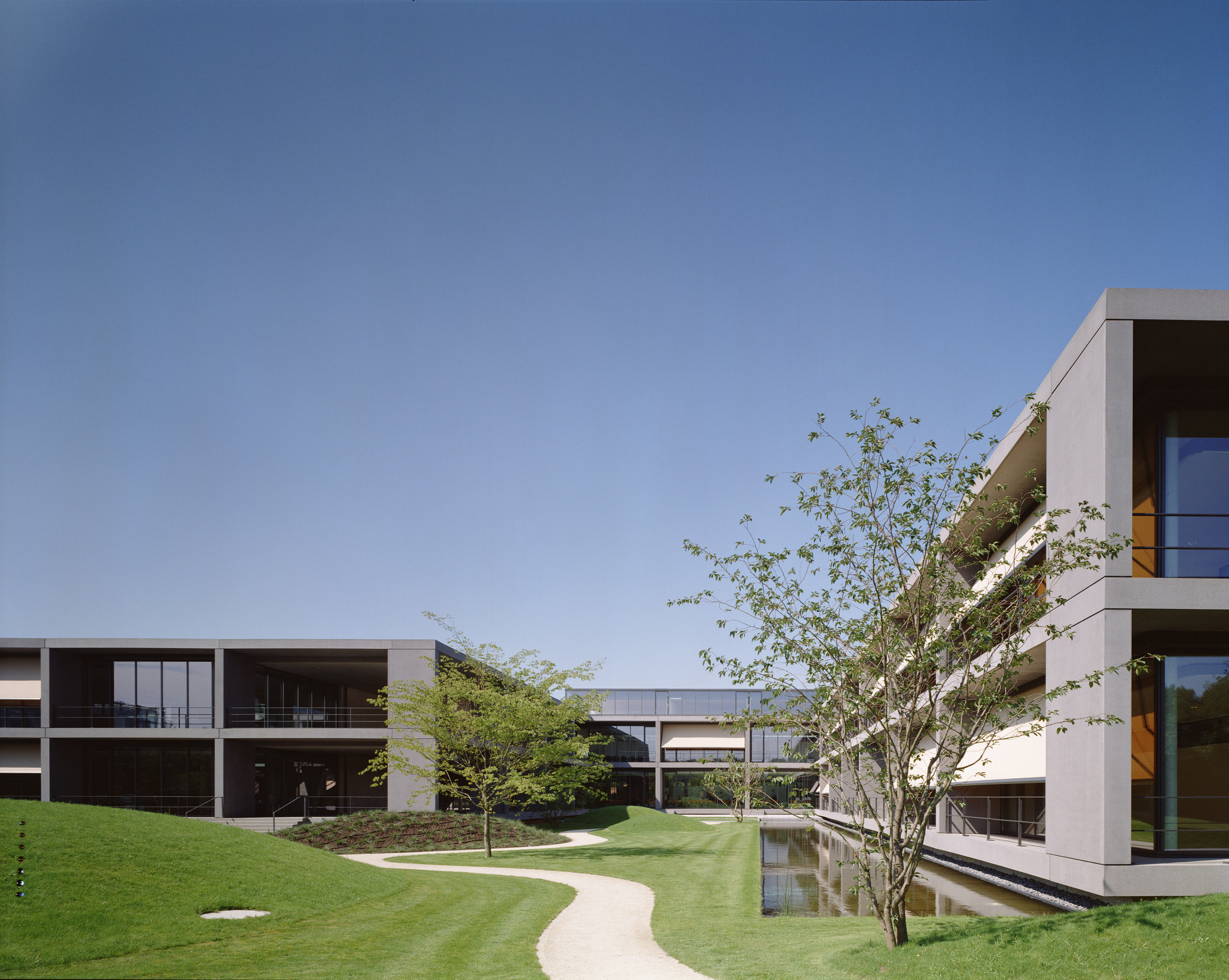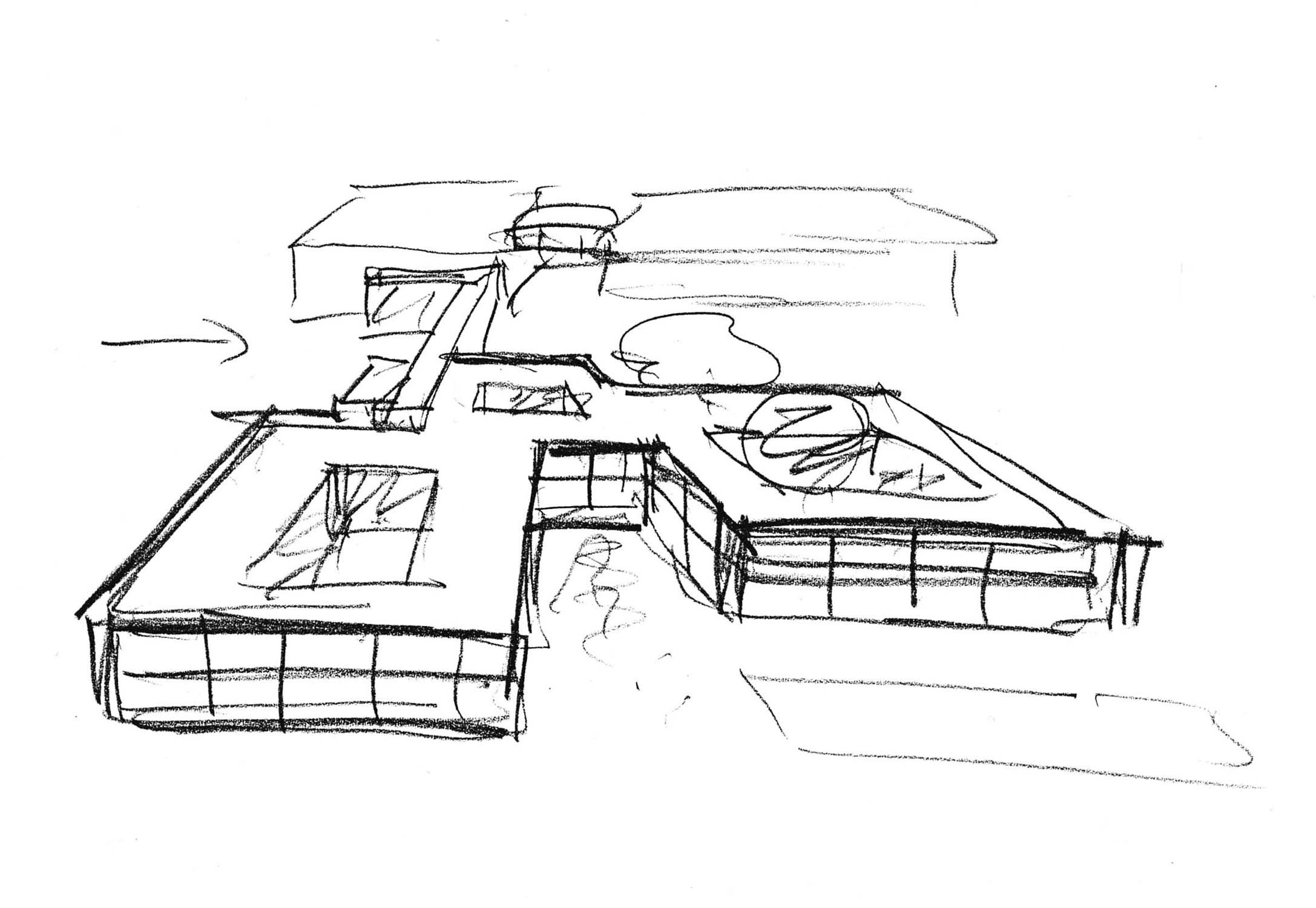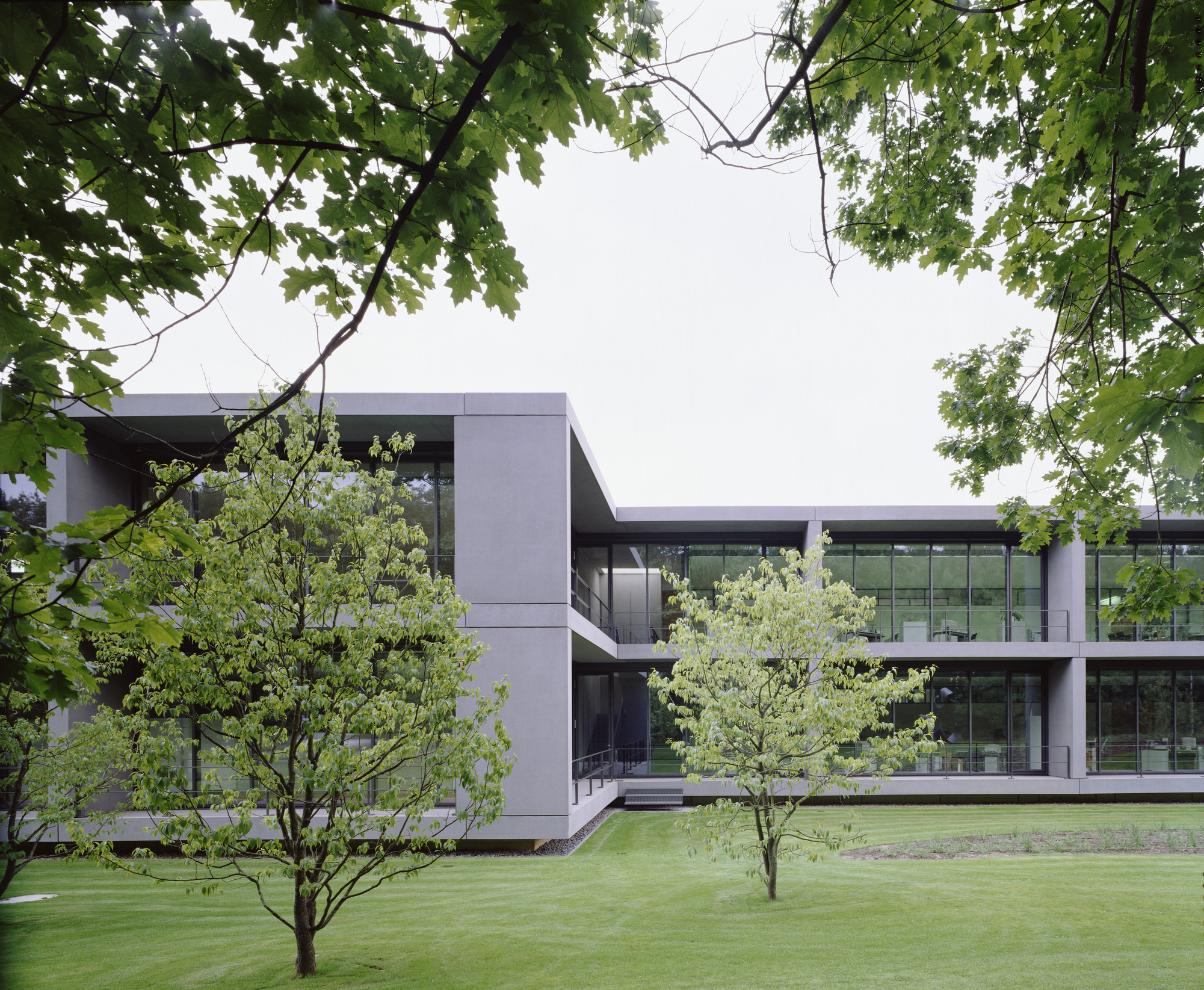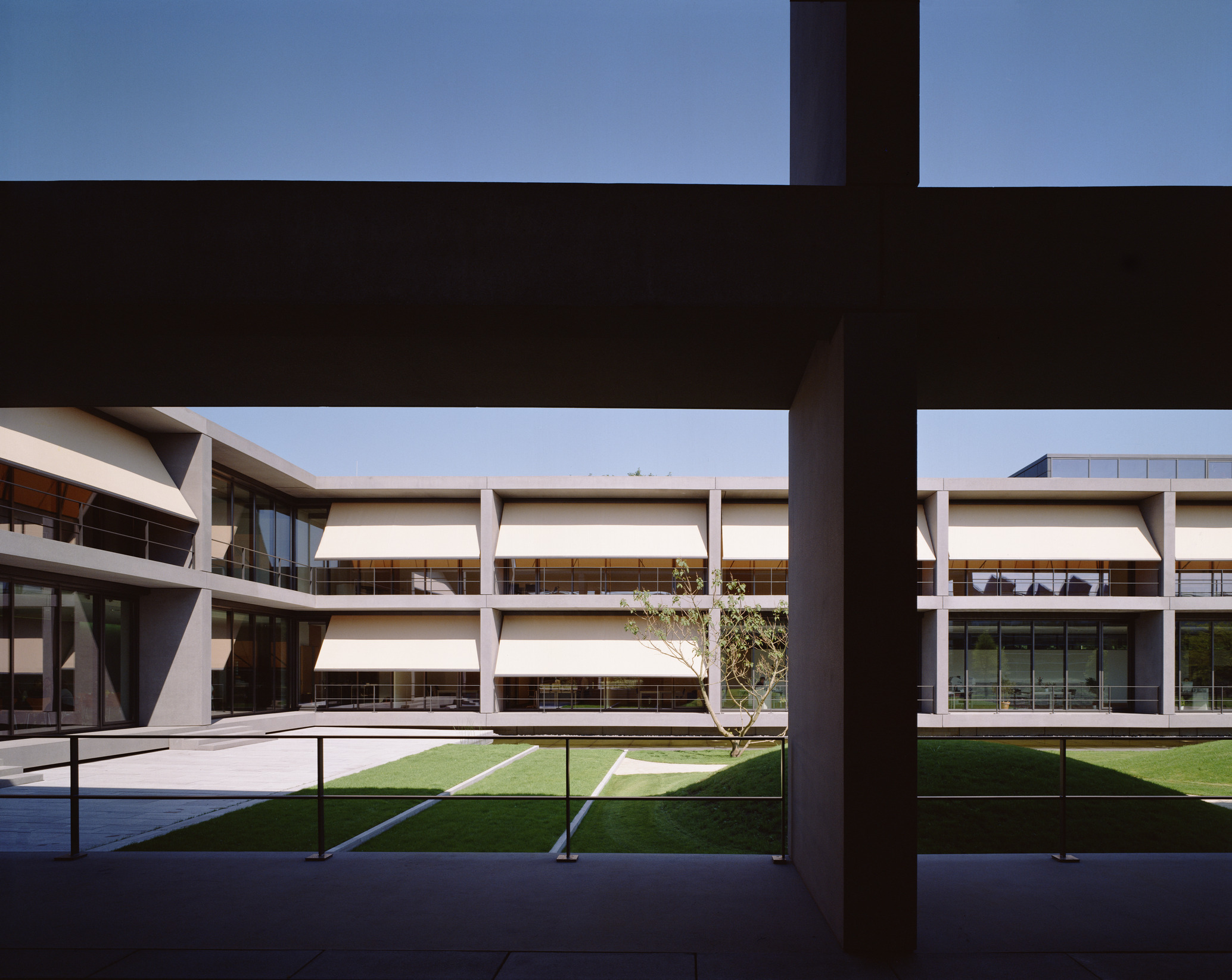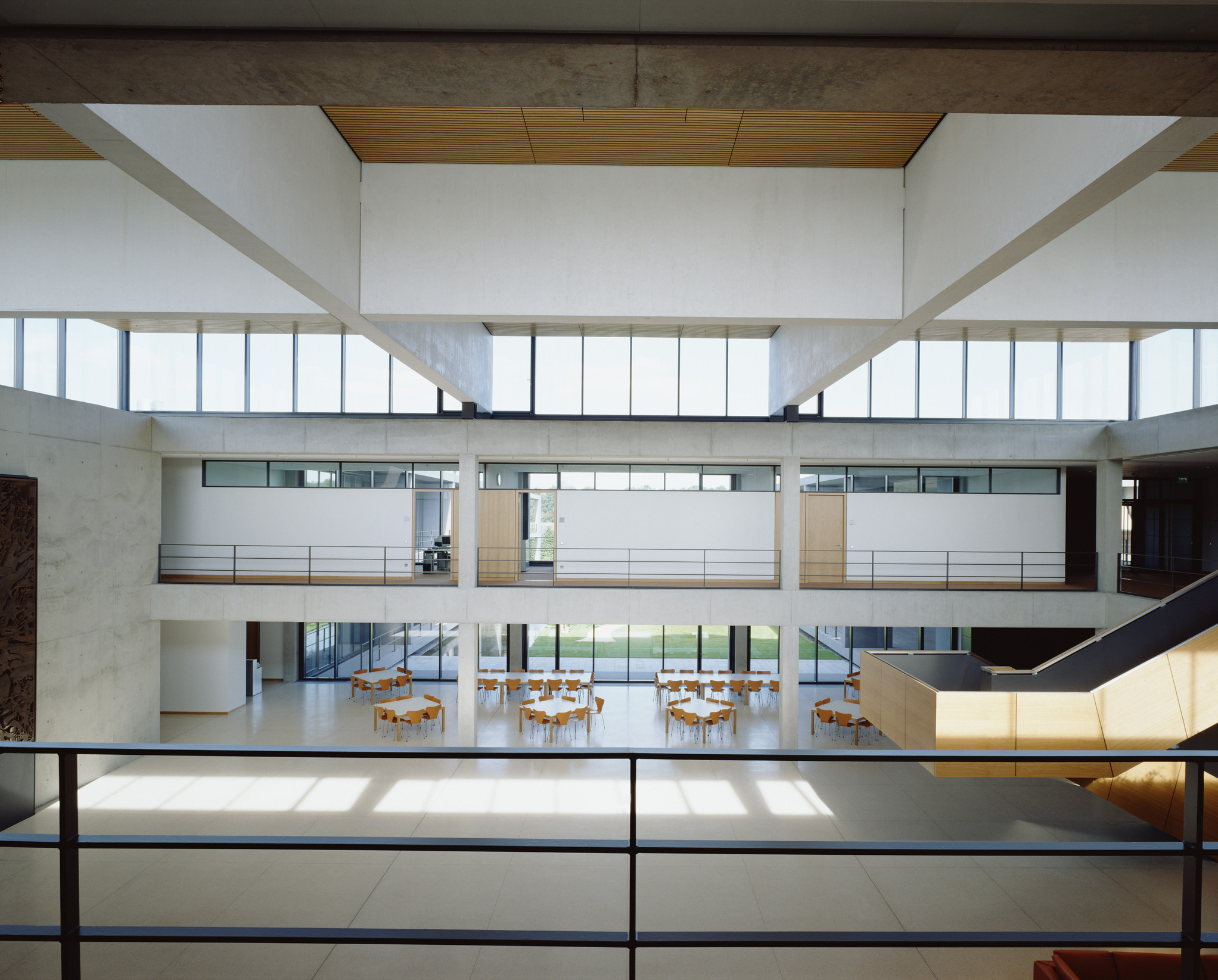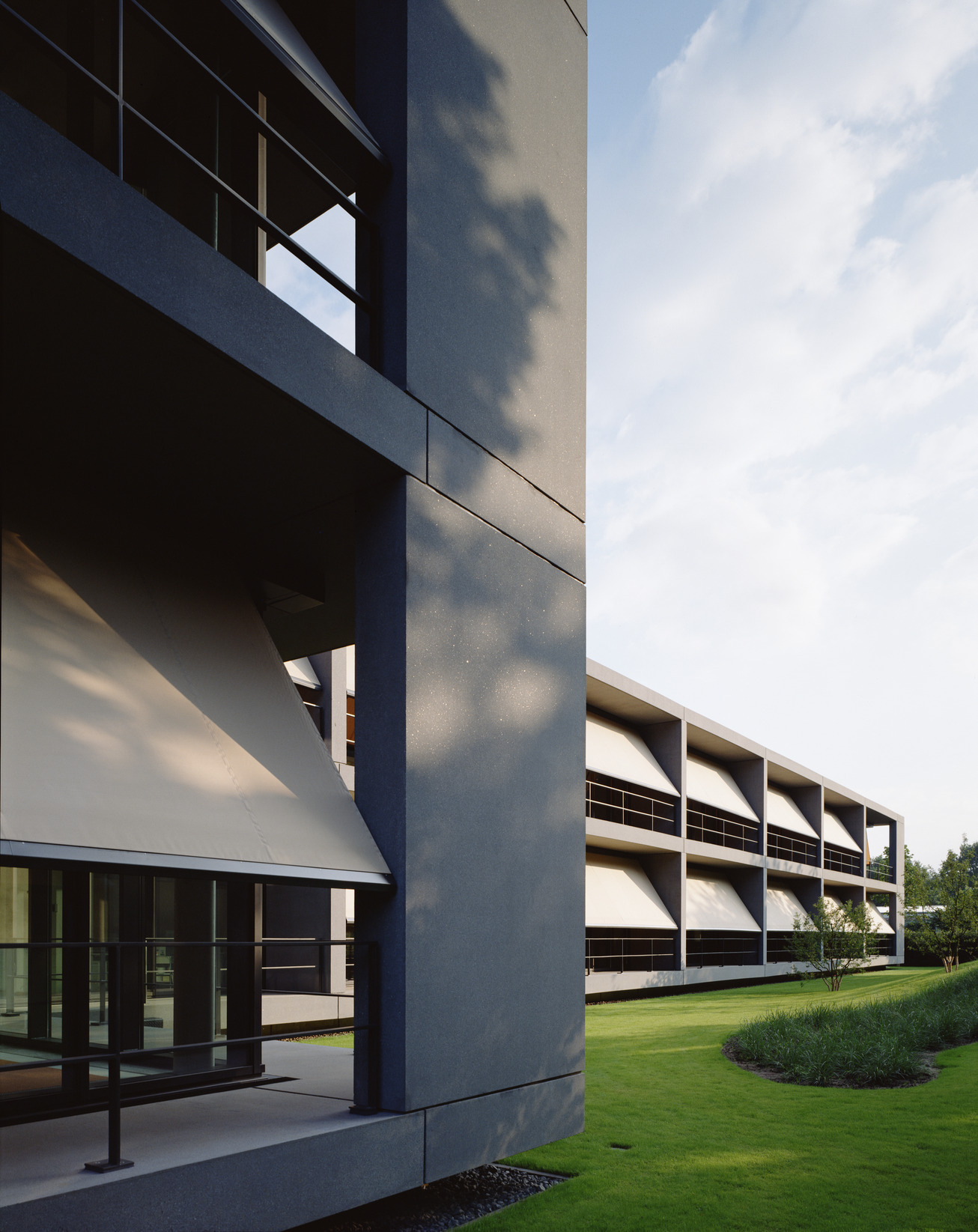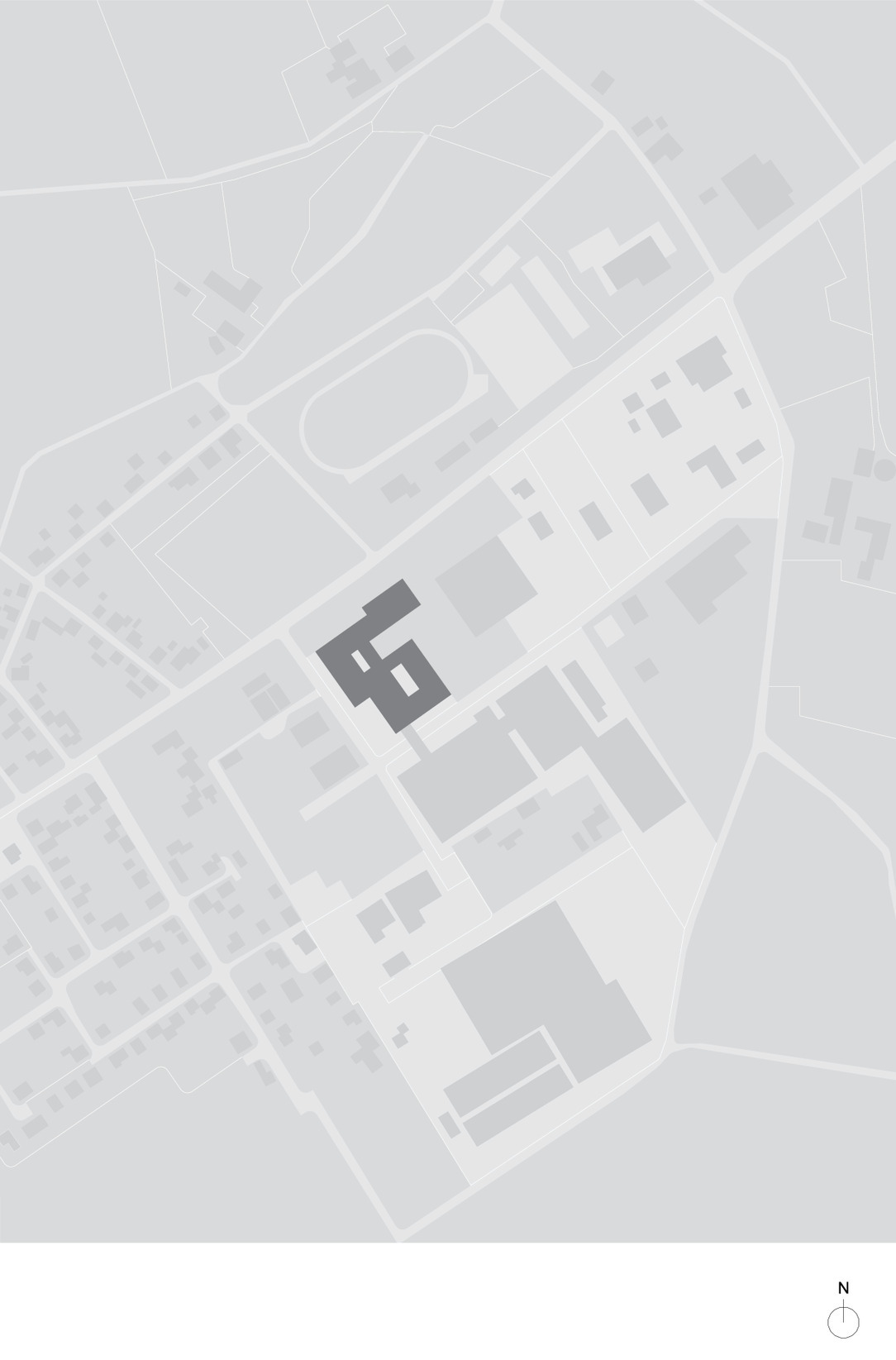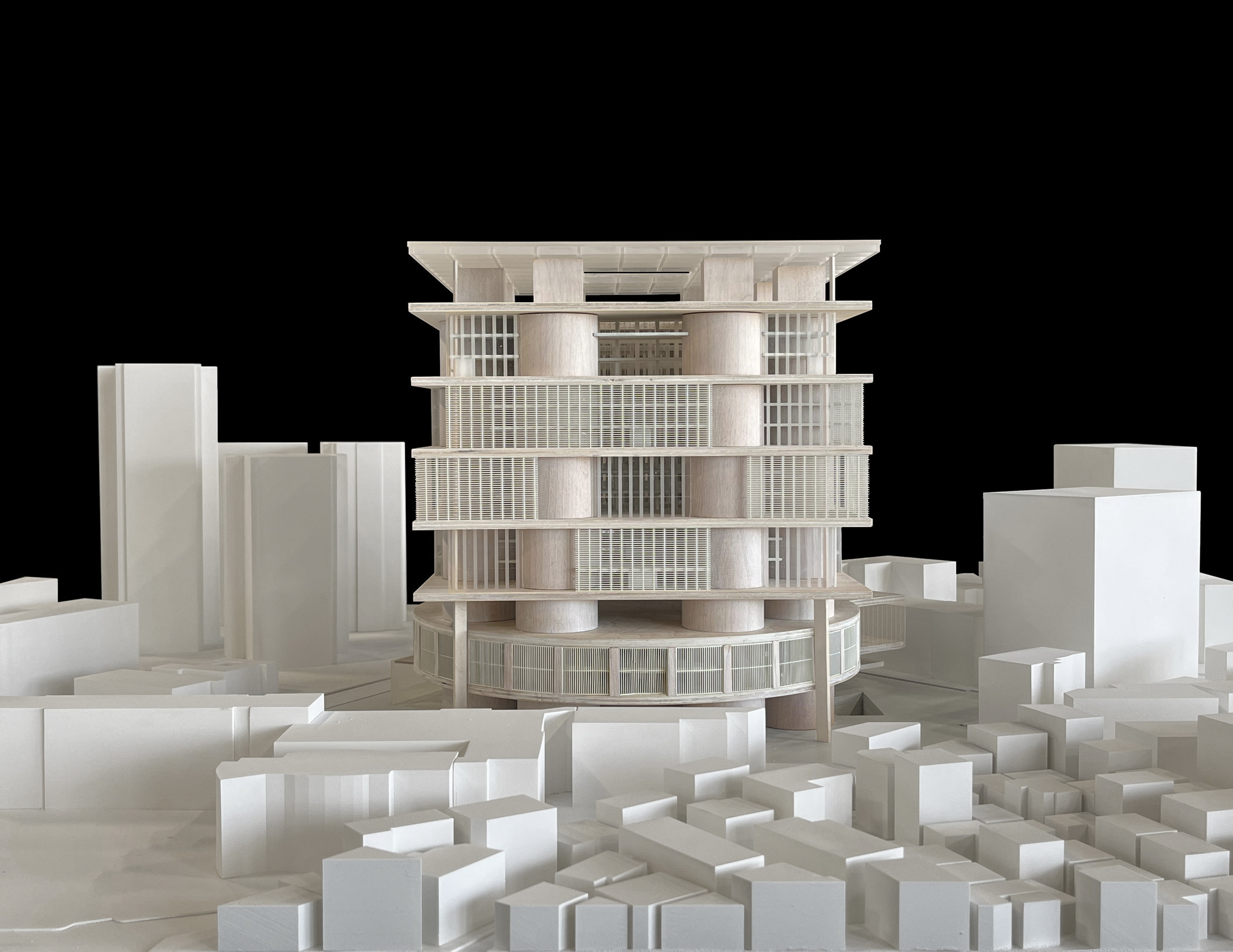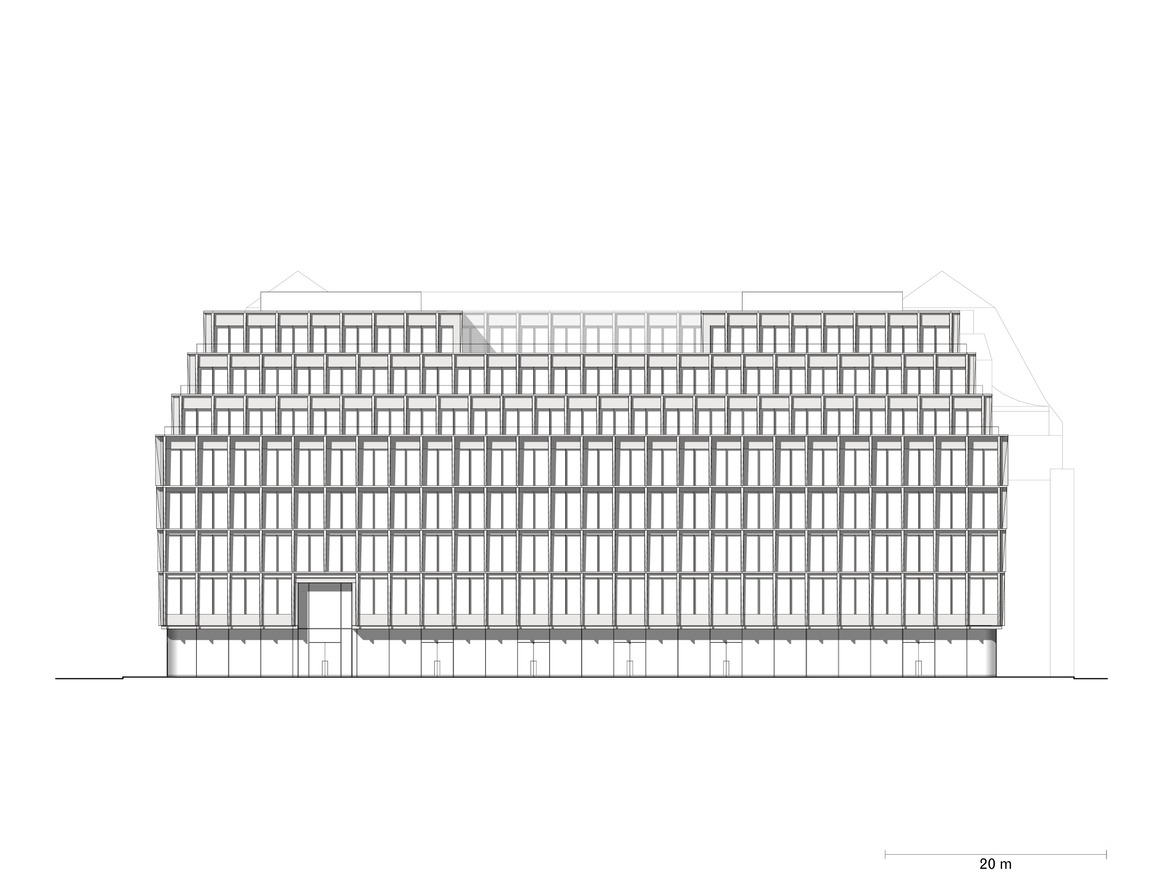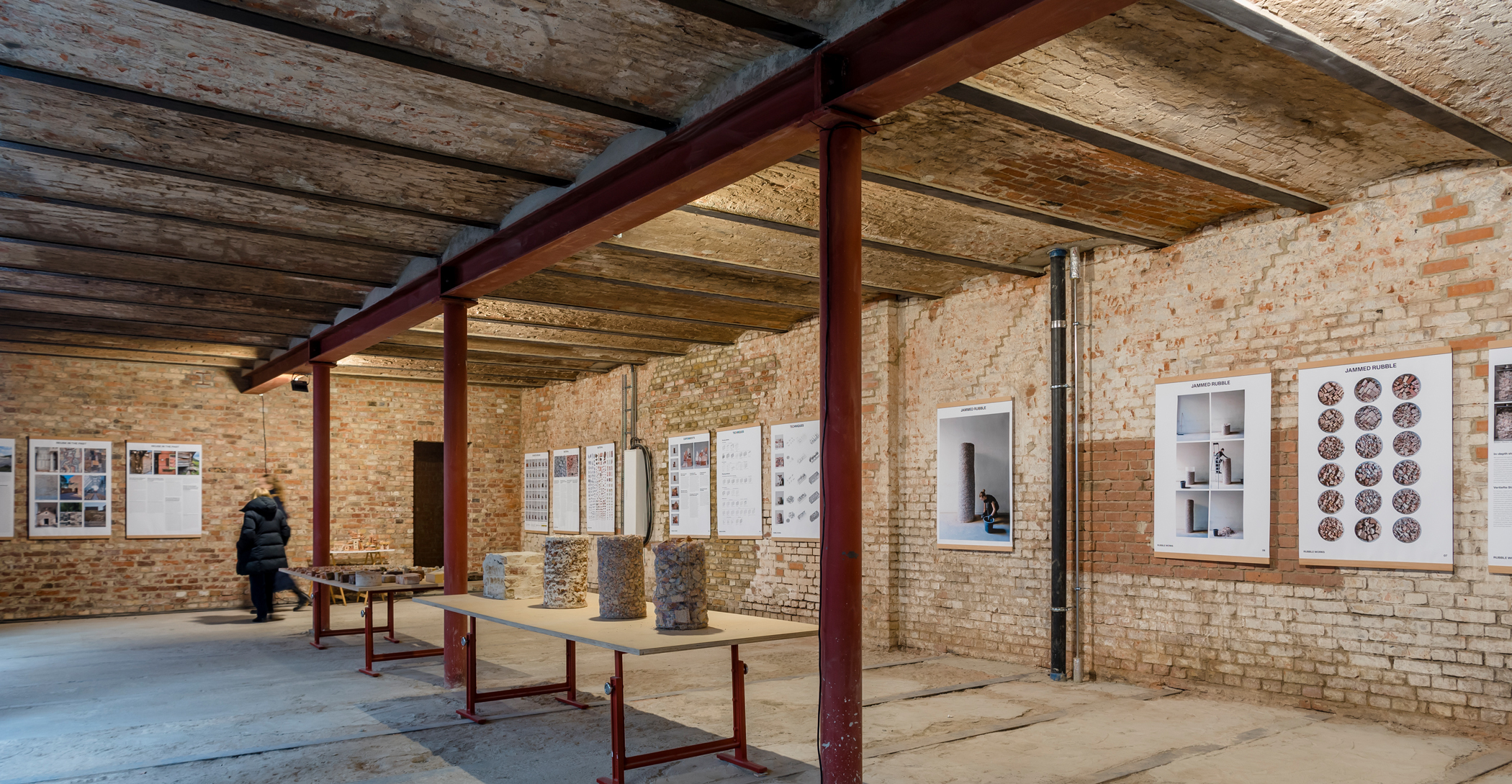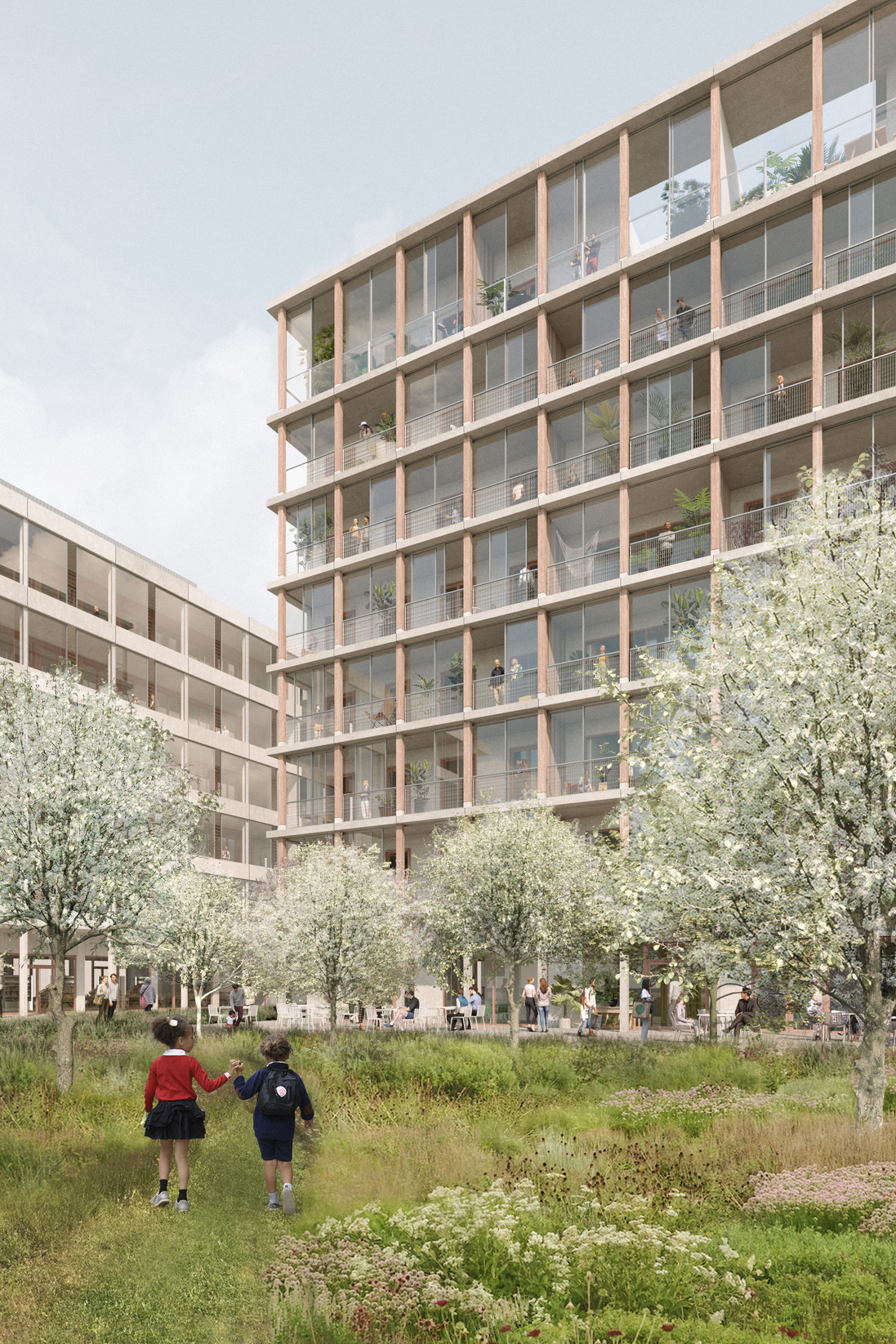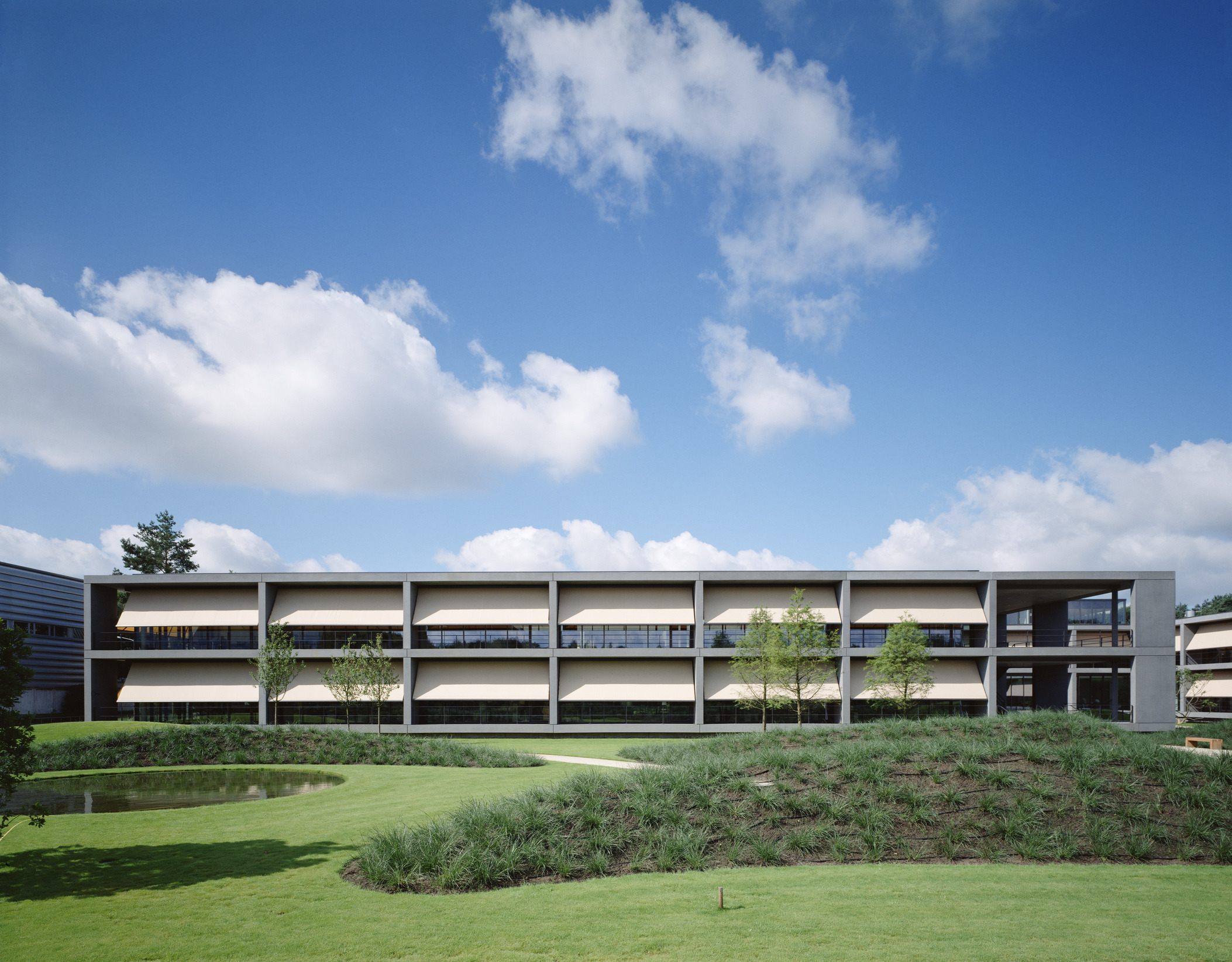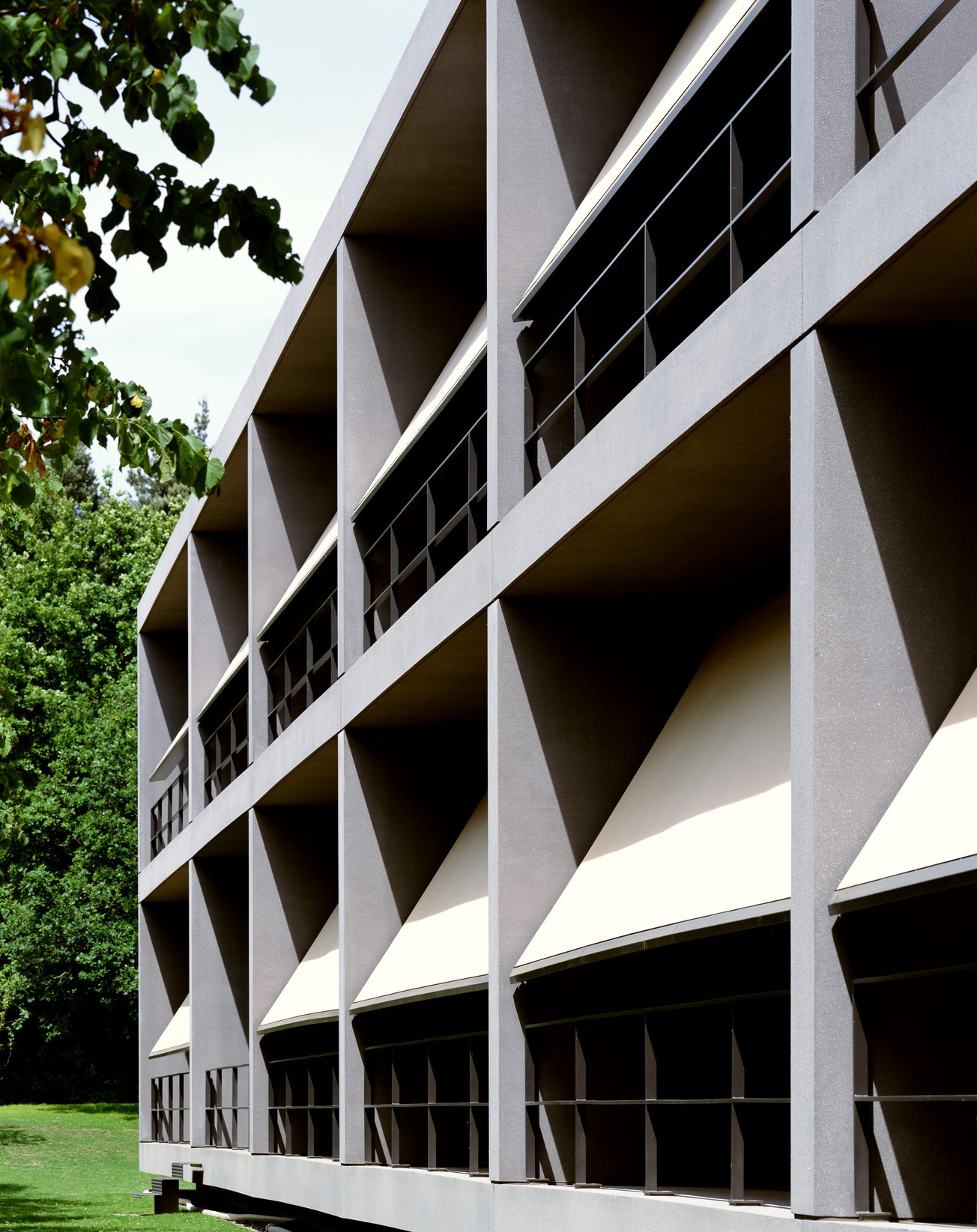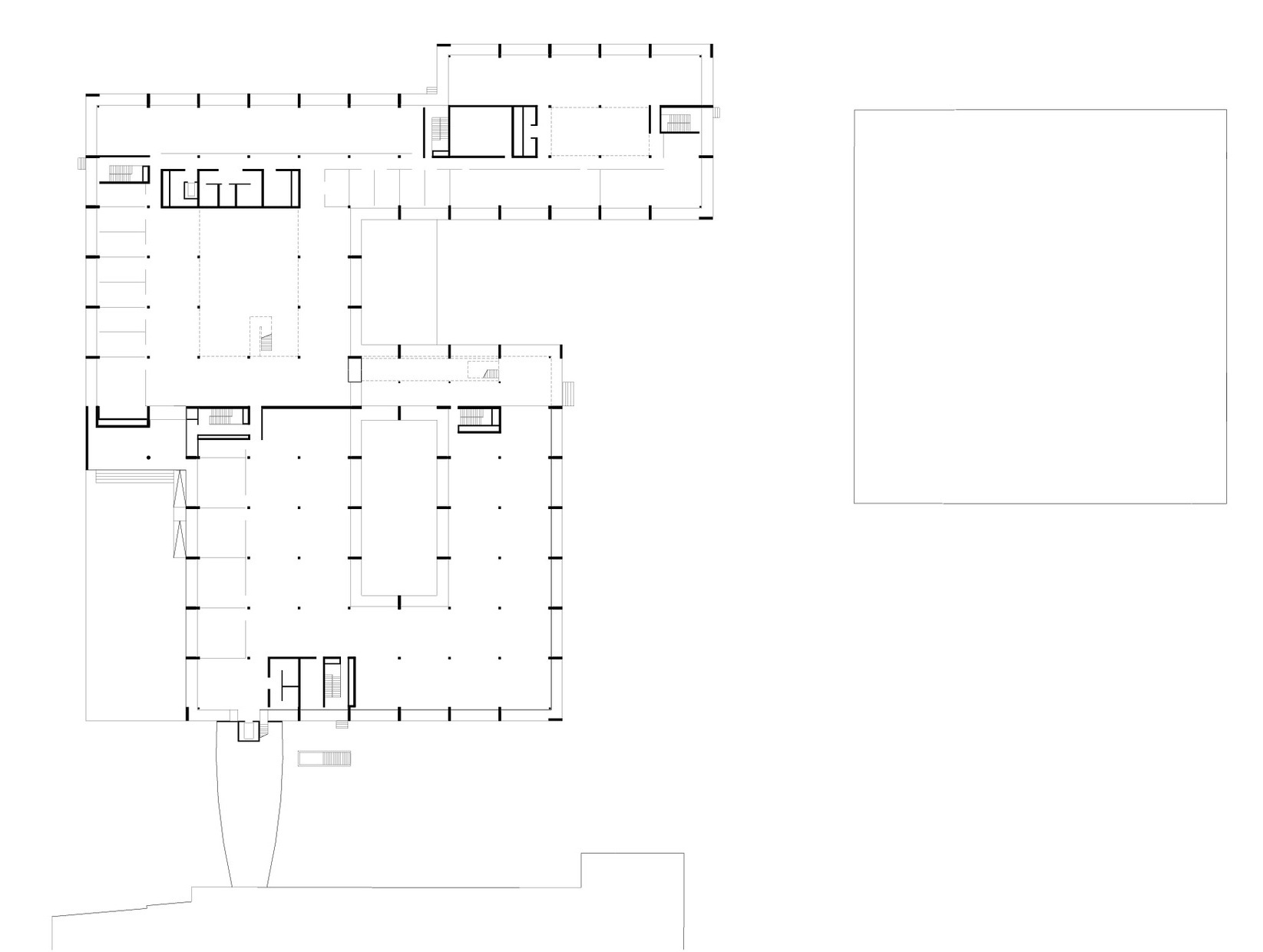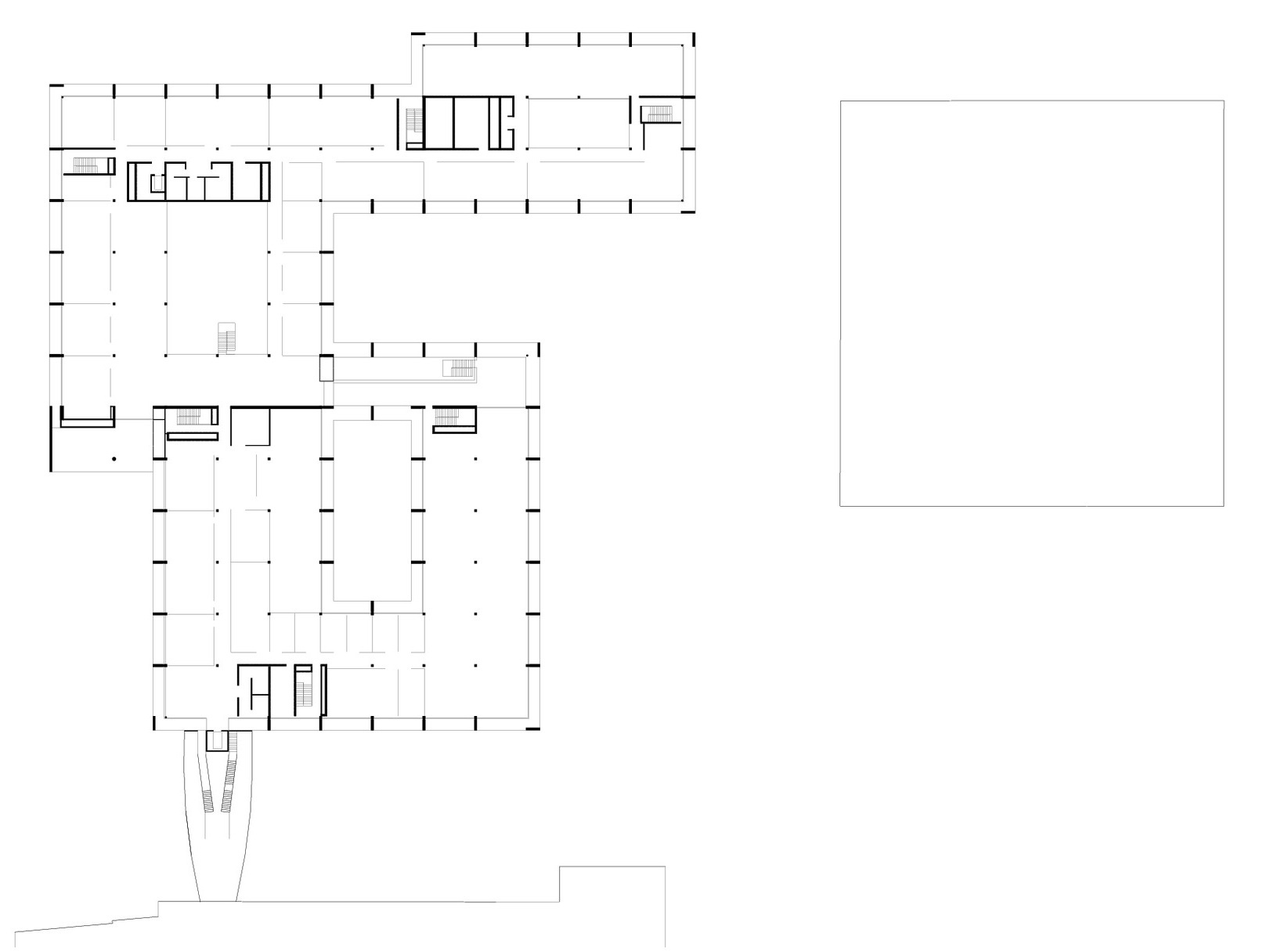Ernsting Service Centre
North Rhine-Westphalia, Germany
1998–2001
This building, located in the small town of Coesfeld-Lette in the Nordrhein-Westfalen region, was commissioned for the new headquarters of the German clothing retailer Ernsting. Situated on a greenfield site, the structure stands alongside two of the company’s existing distribution centres, one of which was designed by Santiago Calatrava in the 1980s and the other by Schilling Architekten in the late 1990s. This third building completed the Ernsting site and provides office space for business and retail managers together with a research and development department.
The concept for its design was to break up the form of a two-storey building into three connected blocks to allow each of these spaces closer interaction with the surrounding landscape and provide a more open relationship between inside and out. The decision to fragment the internal mass of the structure was also influenced by the client, who sought to define each of Ernsting’s distinct areas of business activity within a singular building envelope.
These criteria created an opportunity to design internal courtyards, which not only afford each of the office areas light and views, but also serve to generate a sense of proximity and interconnectedness between the different departments and teams. The feeling of openness is further emphasised by a colonnade and balconies that extend around both the exterior and interior of the structure, and by two atrium spaces, the larger of which acts as the entry point and main lobby, and provides an area where people are encouraged to meet. The office spaces are primarily open plan, providing views into the courtyards and across the countryside from both sides of the building.
The large horizontal windows (divided into vertical panes) are set back from a dark grey concrete prefabricated external superstructure that encases the building on all sides, serving as both brise-soleil and loggia. Raised slightly off the ground, the building appears to sit comfortably within the surrounding landscape, designed by Peter Wirtz with reference to the picturesque principles of the grounds or parkland of an English country estate.
Data and credits
- Project start
- 1998
- Completion
- 2001
- Gross floor area
- 14,000m²
- Client
- Ernstings Bau & Grund GmbH & Co. KG
- Architect
- David Chipperfield Architects London
- Directors
- David Chipperfield
- Project architect
- Martin Ebert
- Project team
- Erik Ajemian, Jennifer Beningfield, Mansour El-Khawad, Jochen Glemser, Johannes tho Pesch, Heidrun Schuhmann, Henning Stummel, Peter Westermann
- Contact architect
- Schilling Architekten
- Landscape architect
- Wirtz International
- Structural engineer
- Arup GmbH; Jane Wernick Associates
- Services engineer
- Planungsgemeinschaft Haustechnik
- General contractor
- E. Heitkamp
- Photography
- Christian Richters
